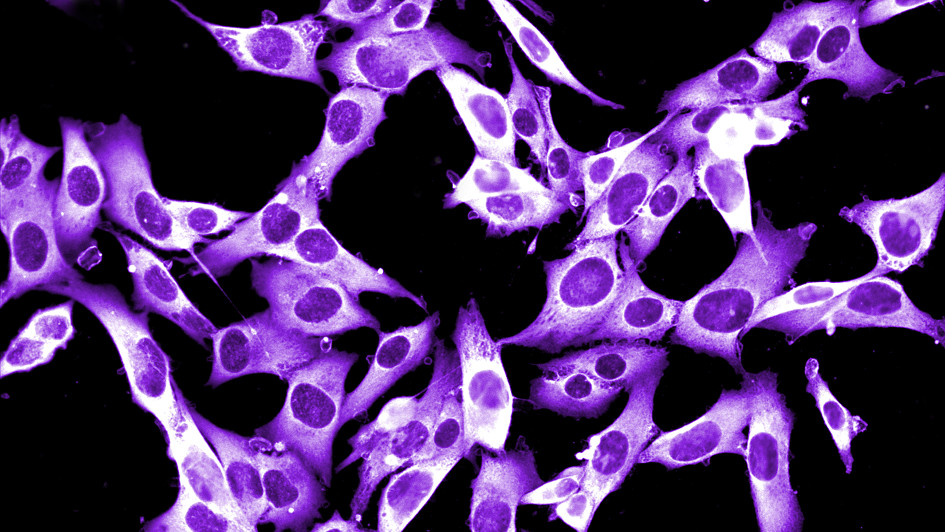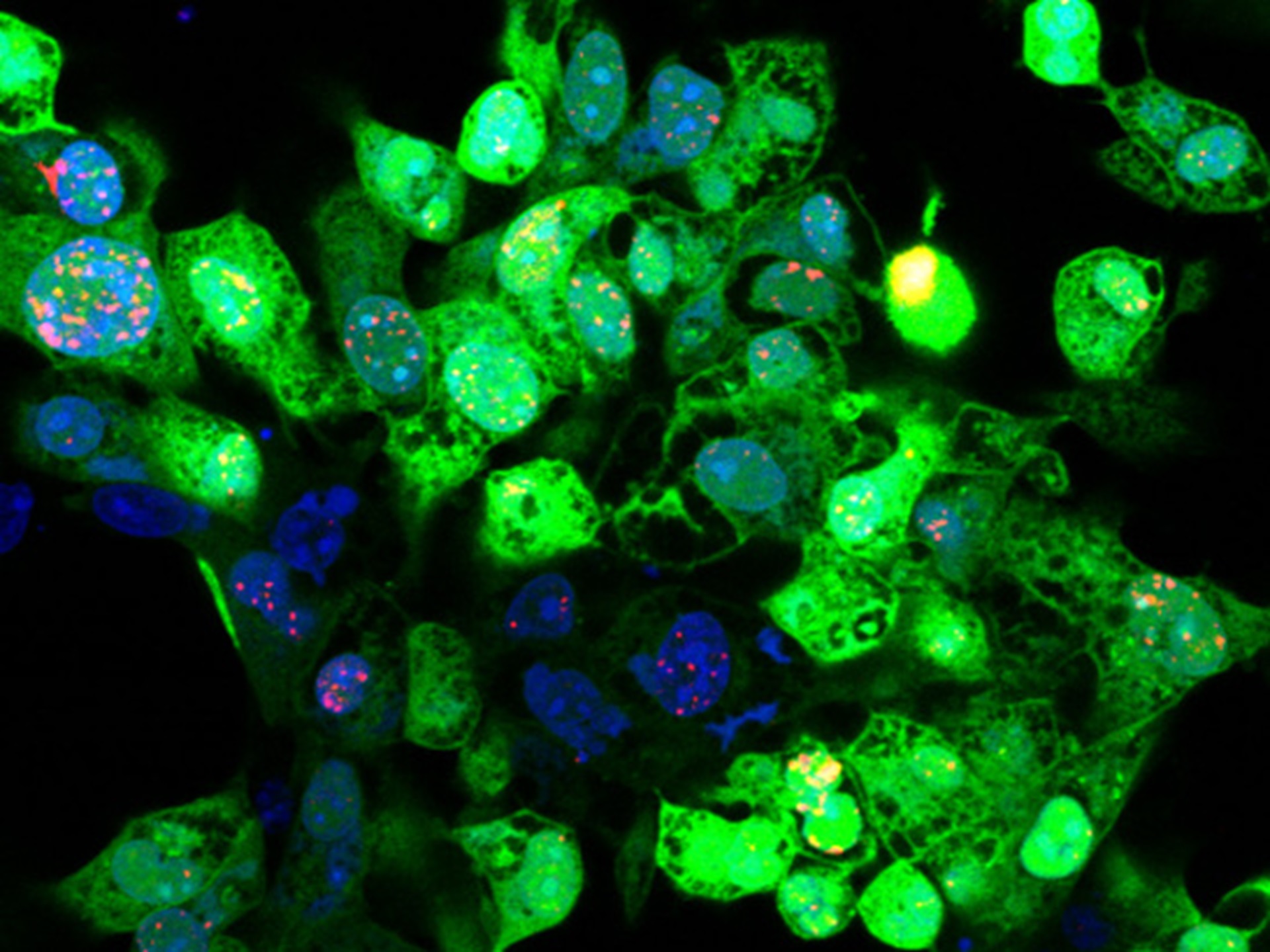Our research into melanoma
ICR scientists are at the forefront of research to better understand the skin cancer melanoma.
Our research is behind discoveries for some of the most important new treatments for the skin cancer malignant melanoma, and our pioneering scientists at the ICR continue to make breakthroughs that are helping to transform treatment of the disease.
Image: t-vec infected melanoma cells, Image credit: Professor Kevin Harrington
Our progress against melanoma
The skin cancer melanoma is the fifth most common cancer in the UK, with around 16,000 newly diagnosed cases each year. Just 10 years ago, only one in 20 patients with advanced melanoma would survive for five years – with many living for just six to nine months.
Scientists at the ICR have long been at the forefront of research to better understand melanoma, and we have played a part in developing some of the most important recent treatments for the disease that are offering patients new hope.
BRAF Inhibitors
One of the ICR’s most high-profile successes of recent years was research to understand how mutations in a gene called BRAF could help cause the disease.
Our work in the laboratory led to the discovery of BRAF-inhibiting drugs including vemurafenib and dabrafenib, which are now mainstays of treatment for advanced melanoma.
Metastasis
Our researchers are working to understand how melanoma spreads, through a process called metastasis.
For example, Professor Chris Bakal is harnessing sophisticated imaging techniques to see melanoma cells up close using a sophisticated ‘lattice light sheet’ microscope – purchased thanks to generous donations from our supporters.
Clinical trials of immunotherapies
ICR researchers have played leading roles in major clinical trials of immunotherapies in people with melanoma, leading to the approval of new immunotherapies for patients.
For example, Professor Kevin Harrington, Professor of Biological Cancer Therapies at the ICR and Consultant Clinical Oncologist at The Royal Marsden, led the UK arm of a landmark clinical trial which showed the benefits of the genetically modified virus T-VEC as a melanoma treatment.
Harnessing white blood cells
Professor Alan Melcher, a leading immunotherapy researcher at the ICR, is using white blood cells to boost the effectiveness of immunotherapies for cancers like melanoma.
Professor Melcher has helped show that these cells can carry viral immunotherapies injected into the body to cancer cells, showing that harnessing these cells could mean immunotherapy could be used to treat more cancer patients.
Your support helps
Please donate today to help more people survive the skin cancer melanoma.
As a UK charity, our life-saving research relies on the generosity of individuals and organisations. Our supporters help us make a difference to the lives of cancer patients and their families everywhere.
Melanoma discoveries

New AI technology could bring cancer drugs to patients in half the current time

